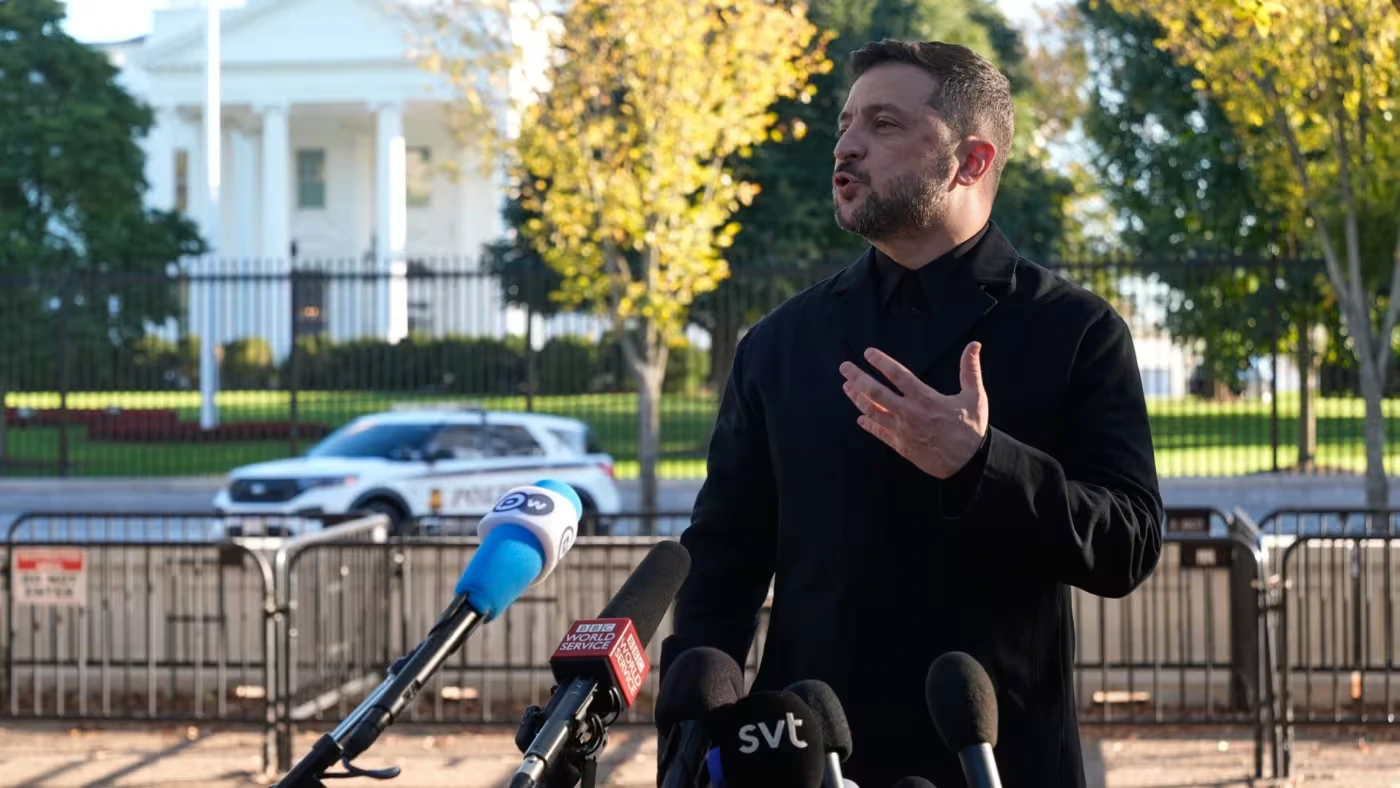Ukraine and its European allies have declared that any peace talks with Russia must be based on the current line of contact rather than on further territorial concessions from Kyiv.
On Tuesday, Ukrainian President Volodymyr Zelenskyy and the leaders of nine countries — including France, the United Kingdom, and Germany — issued a joint statement emphasizing that the present front line “should be the starting point for negotiations.”
The document, which was also signed by European Commission President Ursula von der Leyen, states:
“The current line of contact should be the starting point of negotiations.”
According to The Financial Times, the joint declaration followed mixed signals from Washington about whether U.S. President Donald Trump was ready to support Moscow’s territorial demands.
The newspaper reported that during a tense meeting at the White House late last week, Trump urged Zelenskyy to cede the entire Donbas region to Vladimir Putin, although he later endorsed a “freeze” of the current front lines.
The signatories further stressed that their countries are “developing measures to use the full value of Russia’s immobilized sovereign assets so that Ukraine has the resources it needs.”
The statement came amid preparations for a possible summit in Budapest between Trump and Putin, as The Financial Times previously reported.
Why It Matters
This joint declaration signals that Ukraine and its European partners intend to insist that the existing front line be treated as the baseline for any peace negotiations. Kyiv has made clear it will not accept a deal that involves new territorial gains for Russia.
As The Financial Times notes, Washington’s position remains inconsistent: while Trump initially called for concessions, he later supported a “freeze” of hostilities without changing borders. This reflects internal divisions within the U.S. over how to bring the war to an end.
The document also highlights the importance of using frozen Russian assets to support Ukraine — a move that European leaders see as a key instrument for the country’s recovery and defense funding.
Context
According to Reuters and AP News, Russia continues to insist that Ukraine must make territorial concessions as a condition for peace. Kyiv, however, warns that any ceasefire without firm security guarantees from Moscow could merely serve as a pause before a new round of aggression.
European leaders maintain that changing international borders by force is unacceptable, and that any peace settlement must rest on the principles of international law.
What Comes Next
Ukraine and its allies will need to:
- Ensure Kyiv’s full participation in any future peace talks and demand strong postwar security guarantees;
- Make certain that frozen Russian assets are indeed used for Ukraine’s reconstruction and defense;
- Prepare for a protracted diplomatic phase, as the positions of Washington, Moscow, and Kyiv remain far apart.
According to The Financial Times, “at a tense meeting last week, Trump urged Zelenskyy to surrender the entire Donbas,” but later backed a “freeze” along existing front lines.
This article was prepared based on materials published by The Financial Times. The author does not claim authorship of the original text but presents their interpretation of the content for informational purposes.
The original article can be found at the following link: The Financial Times.
All rights to the original text belong to The Financial Times.


















